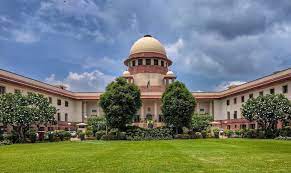Disposing of a batch of writ petitions as well as intra-court appeals concerning recruitment on the post of Junior Office Assistant[JOA], a Class III (Non-gazetted) post, under the Government of Himachal Pradesh[Govt.]. (Para 2)
Pursuant to the correspondences above, the Directorate of Higher Education, Himachal Pradesh, Shimla, vide letter dated 27.05.2017, provided a list of institutions recognized by Himachal Pradesh Takniki Shiksha Board[Takniki Board], Dharamshala, District Kangra, Himachal Pradesh. (Para 2(F))
In between, candidature of several candidates was rejected for not possessing essential qualifications as prescribed by the 2014 Rules. (Para 2(G))
As a result of the above decision, many candidates who, as per the 2014 Rules, were not eligible, came within the zone of consideration and as such included in the select list, resulting in ouster of such candidates who, though lower on merit, were otherwise eligible as per the 2014 Rules. (Para 2(J))
Under the first advertisement for Post Code 447, the advertised posts were filled with the aid of the order dated 21.08.2017, which relaxed the advertised eligibility conditions. The litigation therein was initiated by two sets of candidates. One set comprised of those whose candidature got rejected because they failed to meet the eligibility criteria prescribed in the advertisement and the 2014 Rules. The other set comprised of those candidates who were aggrieved by relaxation of the eligibility criteria as it expanded the zone of consideration and thereby reduced their chance of selection. (Para 5)
In respect of recruitment against the second advertisement for Post Code 556, challenge was laid by those who either held qualifications at variance from the one prescribed, or had certificate(s) / diploma(s) from such institutes that were not considered recognized. (Para 6)
In respect of the third advertisement dated 21.09.2020, the challenge was confined to 531 posts that were carried forward as unfilled vacancies notified under the second advertisement for Post Code 556. In this category of cases, the claim was that vacant posts of JOA, advertised as Post Code 556, should not have been left unfilled as eligible candidates were available had the benefit of the relaxation been provided. They, therefore, claimed that those carry forward posts, now advertised as Post Code 817, be segregated and filled as part of the second advertisement by taking into consideration those candidates who would be eligible by virtue of the relaxation. (Para 7)
In light of the findings / observations noticed above, the High Court dismissed Writ Petition No. 34 of 2019 which questioned the relaxation order; and upheld the process of selection and appointment against Post Code 447. Consequent to the dismissal of Writ Petition No. 34 of 2019, other writ petitions, namely, numbered 2253, 2289, 2290, 2388, 2394 and 7681 of 2020, which were filed for consideration of candidates who benefited from the relaxation order, were dismissed as infructuous. (Para 9)
Writ petitions seeking relaxation in the eligibility conditions for the second advertisement (i.e., for Post Code 556) in terms provided for Post Code 447, were disposed of by directing that same relaxation be accorded for Post Code 556 as accorded for Post Code 447. (Para 10)
The relaxation / clarificatory order dated 21.08.2017, as approved by the State cabinet on 18.09.2017, being after the last date fixed by the advertisements dated 13.02.2015 (i.e., for Post Code 447) and dated 18.10.2016 (for Post Code 556) for receipt of applications from candidates, is not legally sustainable qua those posts (i.e., Post Codes 447 and 556), particularly, when no opportunity was afforded to similarly placed persons, who might have been left out, to apply and compete with those candidates who, though not eligible as per the terms of the advertisement, had applied there under; (Para 45(i))
The direction(s) contained in paragraphs 33 and 34 of the impugned judgment of the High Court setting aside the closure of the selection process for Post Code 556 and to re-cast the merit list as well as fill up remaining posts of Post Code 556, with the aid of relaxation/ clarification dated 21.08.2017/ 18.09.2017 read with communication dated 19.03.2018, after segregating it from those advertised as Post Code 817, are set aside. (Para 45(ii))
SUPREME COURT OF INDIA
2023 STPL(Web) 417 SC
[2023 INSC 992]
Ankita Thakur & Ors Vs. The H.P. Staff Selection Commission & Ors
Civil Appeal No. 7602 Of 2023 (@ Slp (C) No. 730 Of 2022) With Civil Appeal No. 7603 Of 2023 (@ Slp (C) No. 729/2022) Civil Appeal No. 7604 Of 2023 (@ Slp (C) No. 4321/2022) Civil Appeal No. 7605 Of 2023 (@ Slp (C) No. 9977/2022) Civil Appeal No. 7606 Of 2023 (@ Slp (C) No. 17676/2022) –Decided On 09-11-2023
https://stpllaw.in/wp-content/uploads/2023/11/2023-STPLWeb-417-SC.pdf







